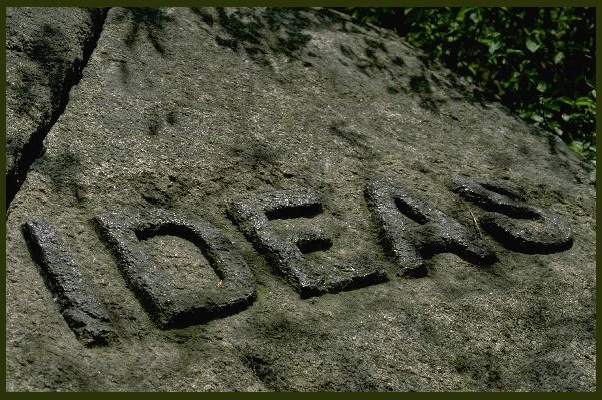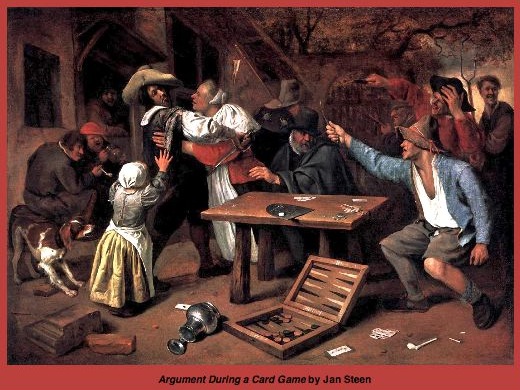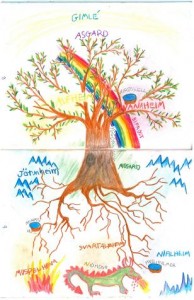Fri 9 Dec 2011
Following the bouncing ball
Posted by PJ under archetypes, art, books, caregiving, djinn, ideas, indians, myth, novels, reading, research, sabina, sacrifice, the numberless stars, writing
No Comments
Lately I’ve only been taking half-hour lunches at work because I need to get on the road home earlier than I used to. A half hour doesn’t seem sufficient to get any writing done once I’ve gone down to buy lunch and come back upstairs. But I’ve managed to squeeze in some “research reading,” which makes me feel as if I’m keeping my hand in as a writer. Between caregiving, a full time job, and exhaustion there is no other time slot for actual writing. I realize my research-reading-as-extension-of-writing is something of an illusion, but it’s been quite a creative illusion for all that.
Currently, I’m reading a fascinating book called Legends of the Fire Spirits: Jinn and Genies from Arabia to Zanzibar by Robert W. Lebling. It’s sparked all kinds of ideas. Curiously, most of them have been for existing stories rather than new ones, fleshing them out, solving plot issues, broadening character. None of these stories are about djinn, but the book brings up many wonderful cross-cultural themes. Anytime I read mythology of any sort it sparks loads of ideas for me, and the fact is, most Western mythology has roots in the Middle East. We share a profound cultural connection, an archetypal basis, with that part of the world, whether we care to acknowledge it or not.
This week the book sparked a ton of ideas for the Annia Sabina book I mentioned the other day. Last week it pumped out goodies for a novel I’ve been playing with for several years. Before that, I was reading The Spirit and the Flesh: Sexual Diversity in American Indian Culture by Walter L. Williams specifically to do research/get ideas for my historical fantasy, The Numberless Stars. That book did its job well and I got plenty of ideas. Before that, it was yet another something that had my mind clicking away at yet another novel.
Which is all well and very good, but it does mean I’m bouncing around a lot. That’s not an unfamiliar pattern for me when I’m between projects. I tend to bounce until something takes a firm hold and I commit a substantial amount of writing to the page. Then momentum takes over and I work through the idea, generally, until it’s finished.
But, as I said, I’ve got maybe a half-hour a day to dedicate to anything me-related, to my writing, and research reading, and cozening the muse. Unless I’m stealing time from something else I should be doing to do…this. Or something like it.
I’m itching to write. I have moments when I speak with such confidence about what the next project will be! But in truth, I’m bouncing. I may bounce until I splatter myself unless I can figure a way to steal or carve out what I need and still meet my honorable commitments.
Writing requires sacrifice. Art requires it. We’re always stealing from something else in order to do that thing which makes us feel whole. Generally from time with family and friends, from our social lives, etc. There is no easy way to do this and do it well. Even if you manage to achieve full-time artist/writer status, there will always be something you have to give up in order to do that which makes you feel whole. The question of what and how much is an individual thing. No one can make that decision for you, and sometimes the circumstances are very hard indeed.
For me, I can’t go forever with my creative channels choked off. Something has to give, but it’s impossible for me to say what at this point. In the meantime, I’ll continue to bounce and steal and hope that something anchors me before I splatter. Sometimes it’s as simple as saying, “Just do it, for God’s sake!”
Just do it. Sometimes it’s as simple and as hard as that.




